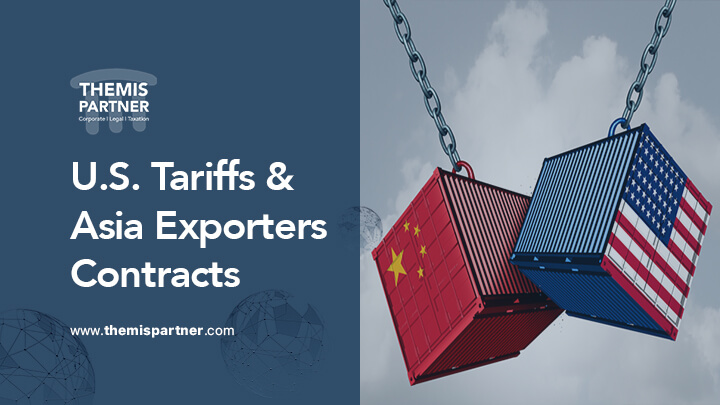Singapore vs Hong Kong
Both Singapore and Hong Kong are renowned for their business-friendly environments, low taxes, and efficient regulatory frameworks. Singapore consistently ranks highly in various global indices for ease of doing business, while Hong Kong has long been a hub for international trade and finance.
Ultimately, the choice between the two cities depends on the specific needs and goals of the business. Singapore offers a stable political and economic environment, strong rule of law, and a highly skilled workforce, while Hong Kong boasts proximity to the huge Chinese market, an established financial sector, and a favorable tax regime. Both cities offer excellent infrastructure, connectivity, and a multicultural environment that attracts top talent from around the world.
Business Environment
Singapore is known for its ease of doing business, transparent regulations, and low corruption levels. The country has consistently ranked highly in global business rankings, such as the World Bank’s Doing Business report. Singapore offers various incentives and support for startups, including tax breaks, grants, and funding opportunities. The country also has a strong intellectual property regime, which makes it an attractive destination for companies involved in research and development.
Hong Kong also has a business-friendly environment but has faced some political instability in recent years. The city has a well-developed legal system and a robust financial market, which makes it an attractive destination for companies involved in finance and investment. Hong Kong has a relatively simple tax system with low tax rates, which also makes it an attractive destination for entrepreneurs.
Overall, both Singapore and Hong Kong offer favorable business environments for startups and established businesses. However, depending on the specific needs of your business, one city may be a better fit for your company over the other.
Taxation
Singapore and Hong Kong both have relatively low tax rates and simple tax systems, which make them attractive destinations for businesses. However, there are some differences between the two cities’ tax systems.
Singapore has a progressive tax system with a maximum corporate tax rate of 17%, which applies to income above SGD 300,000. There is no capital gains tax in Singapore, and companies can enjoy various tax incentives and grants, including the Productivity and Innovation Credit scheme, which provides tax deductions for certain expenses related to productivity and innovation.
Hong Kong also has a relatively simple tax system, with a maximum corporate tax rate of 16.5%. Hong Kong does not have a capital gains tax, and companies can enjoy various tax incentives, such as tax deductions for research and development expenses, tax exemptions for offshore profits, and tax credits for donations to charity.
Overall, both Singapore and Hong Kong have competitive tax systems that make them attractive destinations for businesses. However, the specific tax benefits and incentives may differ depending on the industry and nature of your business, so it’s essential to consult with a tax professional to determine which location is best for your company.
Get the legal advice you need to navigate the complexities of the region's legal landscape.
310 client reviews (4.8/5) ⭐⭐⭐⭐⭐
Location
Singapore and Hong Kong are both strategic locations for businesses in Asia, but there are some differences between the two cities.
Singapore is located in Southeast Asia, which provides easy access to various markets in the region, including Indonesia, Malaysia, Thailand, and Vietnam. The country has a well-developed infrastructure, including modern airports, seaports, and transportation systems. Singapore is also a hub for international trade, with one of the busiest ports in the world and a well-established financial sector.
Hong Kong, on the other hand, is located in East Asia and provides easy access to markets in China and other parts of Asia. The city has a well-developed legal system and a robust financial market, making it an attractive destination for businesses involved in finance and investment. Hong Kong also has a busy port, which serves as a gateway to China and other parts of the world.
Overall, both Singapore and Hong Kong are well-positioned locations for businesses in Asia, and the choice between the two depends on the specific needs of your company. If your business is focused on Southeast Asia, Singapore may be a better fit, while Hong Kong may be a better option for companies looking to tap into the Chinese market.
Workforce
Singapore and Hong Kong have well-educated and highly skilled workforces that are attractive to businesses. However, there are some differences between the two cities’ workforces.
Singapore has a highly skilled and diverse workforce, with a high level of education and proficiency in English. The country has a strong emphasis on education and skills development, with a world-class education system that produces a high number of graduates in various fields. Singapore is also known for its strong work ethic and productivity levels, which are supported by government policies that promote work-life balance and employee engagement.
Hong Kong also has a well-educated and skilled workforce, with a high level of proficiency in both English and Chinese languages. The city has a strong emphasis on education and skills development, with a well-developed education system that produces a high number of graduates in various fields. Hong Kong is also known for its competitiveness and entrepreneurial spirit, with a high number of startups and a vibrant startup ecosystem.
Overall, both Singapore and Hong Kong have highly skilled and educated workforces that are attractive to businesses. The choice between the two cities may depend on the specific industry and nature of your business, as well as the cultural and linguistic preferences of your workforce.
Infrastructure
Both Singapore and Hong Kong have excellent infrastructure that supports businesses in their operations. Here are some key factors to consider:
| ➤ Transportation: Both cities have modern and efficient transportation systems, including airports, ports, and public transportation. Singapore has a more extensive public transportation network that includes buses, trains, and taxis. In contrast, Hong Kong has a well-developed public transportation system that includes buses, trains, trams, and ferries. |
| ➤ Telecommunications: Singapore has one of the fastest and most extensive fiber optic networks in the world, while Hong Kong has a highly developed mobile network. |
| ➤ The Payment of Wages Act: This law regulates the payment of wages to employees and lays down the procedures for recovery of unpaid wages. |
| ➤ Energy and Utilities:Singapore has a diverse range of energy sources, including natural gas, oil, and renewable energy. In contrast, Hong Kong relies primarily on imported energy sources. |
| ➤ Logistics: Singapore is known for its state-of-the-art port facilities, while Hong Kong is known for its air cargo operations. |









